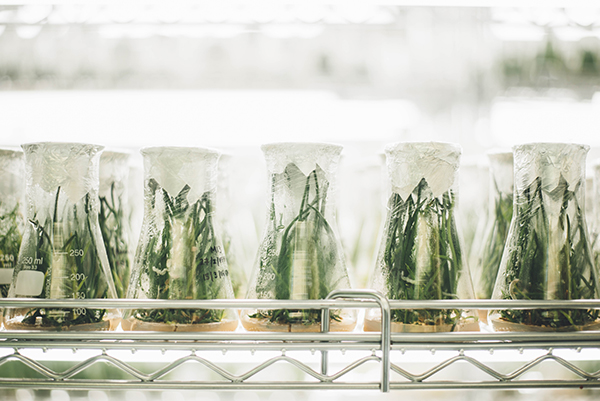THE SCIENCE OF NUTRITIONAL SUPPLEMENTS & NUTRACEUTICALS
We are all affected by our environment, nutrition and lifestyle in a variety of ways, unique to us as individuals. In fact, these factors account for over 75% of our health and life expectancy. Each of us has specific nutritional needs which are difficult to achieve through diet. Dietary supplements and nutraceuticals are a vital source of these crucial nutrients and the reason they are our passion.

What is nutrition and nutraceutical science?
It is the study of the contribution of nutrition to growth, function and health in the human body. Nutraceutical products harness the medicinal power of food-based nutrients and plant extracts.
Scientific evidence amassed over the last 20 years supports nutraceuticals for:
- Treatment and prevention of chronic disease
- Optimal general health
- Preventative health
- Restoration of physiological balance
- Treating the cause of disease rather than the symptoms
The smallest of changes to our diet can have significant impact on our health and well-being.
The way we produce, process and store our food is important as it affects its nutritional potency and therapeutic value.
Which can, in turn, affect our diet.
For example:
- Food processing (canning, freezing, sterilising, blanching) reduces the nutritional value of food.
- Exposing fruit and vegetables to heat (boiling, frying etc.) for extended periods lowers its nutritional value. You can maximise the nutritional value by eating it raw or steaming it.
- Milling of grains can remove up to 26 essential nutrients and a lot of the fibre we need to aid digestion.
- Mineral depletion is common in modern farming. This means that food contains less minerals such as zinc, magnesium and selenium than it used to.
- Fruit and vegetables start to lose their nutritional value at the point of harvesting. Cold storage can make it worse. Grapes can lose up to 30% of their vitamin B while Asparagus, stored for a week, loses 90% of its vitamin C.
Free radicals and oxidative stress
Exposure to the numerous environmental factors we endure day to day puts our bodies under stress and leads to the overproduction of metabolites and free radicals.
Free radicals are a bi-product of natural processes in the body. These same natural processes produce the antioxidants needed to keep their numbers in check.
The effect of excess free radical production is oxidative damage which we call oxidative stress.
Oxidative stress is known to cause many diseases such as Alzheimer's disease, muscular dystrophy, heart disease and hypertension.
Antioxidants are a powerful defence mechanism and help to combat the destructive power of oxidative stress. There is a wide variety of foods that contain antioxidants. A few examples are Vitamin A, Vitamin C, Vitamin E, Selenium and Alpha Lipoic Acid.
Functional Foods
Functional foods contain other health benefits in addition to their nutritional content and are medicines in their own rights. They contain the core molecules needed for neutraceuticals and can help to promote optimal health while reducing the risk of disease.
Most food is functional if we are being technical. They deliver proteins for muscle repair, carbohydrates for energy or vitamins and minerals for cell function. The government of Japan created the class of "functional foods" in the 80s. They consisted of both conventional and modified foods that included additional health benefits beyond simple nutrition. In the U.S. the FDA (Food & Drug Aministration) regulates products labelled as functional food but, doesn't provide a legal definition of the term.
Some examples of functional foods are Sardines and Salmon, nuts and and whole grains, beans and berries.
Supplementation
It is obvious that diet is integral to health and wellness, but, diet alone is not without its problems.
Many nutrients exist in forms that are difficult for the body to absorb. Some are present in such low quantities that they offer little to no benefit at all.
Oranges are famous for their high levels of vitamin C. But, up to 40% of the vitamin C in orange juice exists in a state of biological inactivity which the body won't absorb.
The solution is high quality supplements. Supplementing helps to provides all the missing vitamins, minerals and nutrients in bioavailable forms and potent doses.
Supplements or dietary supplements take the form a pill and consist of food, isolated nutrients or vitamins. Nutraceuticals are a specialised sector of supplements consisting of whole foods supplied in pharmaceutical grade.
High Quality Supplements Demand The Best Ingredients
We source pharmaceutical grade raw materials from trusted suppliers all over the world to ensure the consistency, potency and quality of our supplements. Nutraceuticals are researched to be the most effective individually or in combination. Optimal therapeutic doses are established for both supplemental and therapeutic assistance.
Medical Board & Scientific Review
Healthcare is complex and multifaceted, and we depend on our expert medical board. They provide the medical oversight in product development and help ensure that we stick to our lofty standards.
Before a product can enter the market we ensure that there is substantial evidence of its efficacy and subjected it to scientific review.



